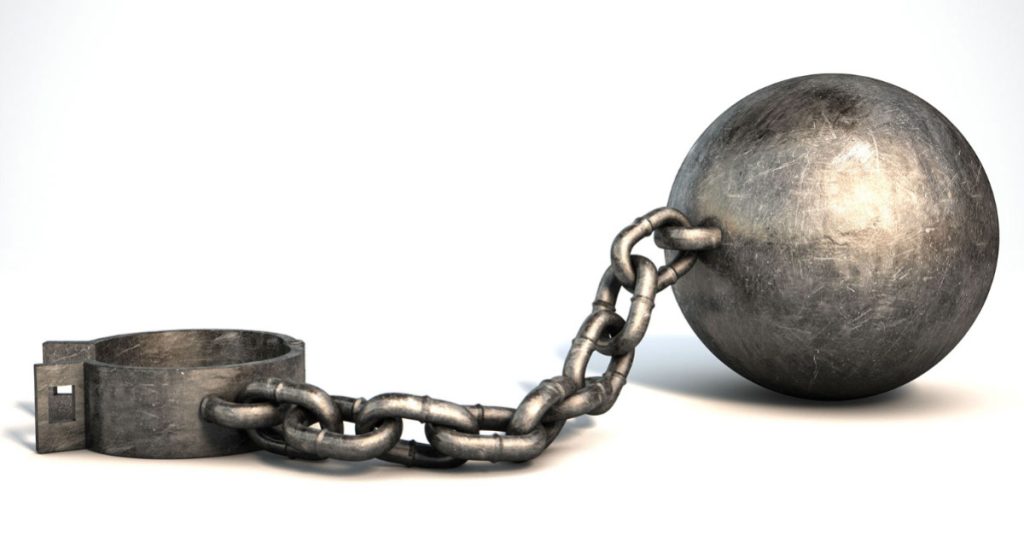Coping with feelings
Many adult siblings tell us they find it hard to manage their emotions at times, in particular feelings of worry, guilt, anger and sadness. You’re not alone. Here are some self-help strategies you can use to help manage these. If self-help strategies don’t change things for you, talk to your GP about getting further help. You deserve support.
Worry
Adult siblings can worry about a whole host of things such as the future, being able to cope with care tasks, genetic issues, their parent’s health, and the wellbeing of their disabled brother or sister. Worry may also have become a habitual way of thinking for some people. If we think of worry as a prompt to take action, this can help us to deal with it, rather than be overwhelmed by it. Many people find that all their worries merge into one large impossible mass of worry. Here are some ideas to help you deal with worries.

Ways of dealing with worry
Write them down
Write all your worries down – make a big list of them
Sort into categories
Put each worry into one of the following categories
- Things that are never going to happen or are very unlikely to happen – for example, a meteorite falling on your house, thinking that you will get the same condition as your brother or sister
- Things you don’t like but you cannot change and other people cannot change either like the weather, your brother or sister’s disability, your own parent getting older
- Things that can be sorted out by other people or organisations – such as asking a psychologist to check on your brother or sister’s mental health, getting your parent to go for a check up
- Things that you can sort out for yourself, things that you can take personal action on, for example, making a phone call to a professional to ask for a re-assessment of need, making a visit to a care home
Acknowledge what can't be changed
With the things you can do nothing about, simply acknowledge that fact and let yourself know that there is nothing you can do about them, and therefore no point in worrying about them.
Take action on those you can change
Take action on the other things. Start with the easiest one first and write down when you will take action on the other worries and what you plan to do. Taking any action at all will help alleviate the worry.
Other things that help
- Distraction – for example listening to music you enjoy
- Exercise – for example, going for a walk or run
- Focus – start thinking about things that are pleasant for you, for example, thinking about a holiday you have enjoyed
- Keeping your mind occupied – for example, getting involved in a hobby
- Sharing the worry – talking to other people who understand the issues
- When worry takes over and you feel anxious most of the time, it is important that you seek external help in the form of counselling or cognitive behaviour therapy. Ask your GP to help you with this.
Guilt
Guilt is a useful emotion if you have actually done something wrong, but less useful when you haven’t. The type of guilt experienced by siblings is usually in relation to something they feel they ought to do or feel about their brother or sister. Feelings of guilt may have come from what they believe their parents and other adults have expected of them during childhood.
Siblings may feel guilty that they don’t have the disabling condition but their brother or sister has; that they have uncaring thoughts about their brother or sister; that they haven’t spent much time with their brother or sister; that they have resented the impact of disability on their lives; or that they have not helped parents as much as they feel they ought to. These are all normal feelings for siblings to have.

Ways of dealing with guilt
Acknowledge the feeling for what it is
Have you really done something wrong? Is this really a justifiable feeling or is it something like you used to feel as a child?
Acknowledge that certain things that have happened are not your fault.
‘I feel guilty that my sister grew up in an institution. I was not involved in that decision as I was a young child. It is not my fault that she had a hard time there.’
If your guilty feelings cause you a lot of distress it may be helpful to have some sessions with a counsellor.
Take action
The feeling of guilt may be telling you that there is something you need to take some action on. The type of action you take will depend on the circumstances. For example, you may feel better if you simply make a decision to visit your sister twice a month, rather than feeling that you ought to go every week but don’t actually do it. Put the dates in your diary.
Is there something you have been putting off and just need to go and do it?
‘I have been intending to find a befriender for my brother for the past year and I’ve done nothing about it except feel guilty that he has no friends. I will spend 30 minutes on the internet on Wednesday night getting contact numbers for local services.’
Practice saying no
People may feel guilty because they have always felt that way whenever they have not done something for someone. This can be especially the case if a parent asks a sibling to support their brother or sister in some way and the sibling is not able to or doesn’t want to do it.
Learn how to say no to requests from other people for small things first. When you practice this, you will find that the world does not come to an end and people will respect your position. It is likely to make it easier for you to feel comfortable about saying no to parents or to your disabled brother or sister’s demands.
Reframe how you view things
Recognise that other people’s expectations of how you should behave as a sibling are simply that – their expectations. How do you want to be as a sibling? What is realistic for you given the other commitments you have?
How can you think about an experience in a positive way rather than in a guilty way?
‘I used to feel guilty about being able to go skiing. Now I go and enjoy it and know that when I come back I will feel refreshed and energised and that my good mood will be good for people who are around me, including my disabled sister. Taking time to do things I enjoy will be better for everyone.’
‘My brother would hate this; he wouldn’t like all the people and the noise. It’s a very good thing that he’s not here.’
Forgive yourself for things that are in the past and accept those things that simply can’t be changed. Just let go of things that you really don’t have any ability to change.
‘I used to pretend that I didn’t have a brother and never mentioned him at school. I felt bad about this for years. That’s what I needed to do as a child. I don’t need to do it anymore. I don’t need to feel guilty about this. It’s just a way for a child to cope.’
Have a rule about not feeling guilty
Learn how to do things that are just for you and when you do, fully enjoy them and say that you will not feel guilty during this period of time.
You have a life that is about other people and other experiences that are not to do with your brother or sister. Allow yourself to see that these things are really important too, and it is OK to do things like give priority to your partner or your own children.
If you find guilty thoughts creeping in, write them down so you can get on with what you are doing, and then have a set time each day when you read them and deal with them in one of the above ways.
If you find that guilty thoughts are a major problem in your life you may need help from a counsellor with this.
Anger
Siblings can struggle with feelings of anger and resentment about their situation and have unresolved feelings of anger from childhood. Often siblings talk about not being able to discuss issues they feel strongly about with their parents or having to hide their true feelings. Anger can become a problem if we have not allowed ourselves to express anger in the past. Anger is a natural response to feeling threatened in some way. Feeling angry can help us deal with situations but it can also be scary. Sometimes the feelings of anger get out of control and cause problems for ourselves or those around us.
Many people find that there are triggers (for example, someone’s tone of voice) that make them feel angry and that the anger is way out of proportion to the situation. So someone may become very angry in response to a minor irritation and for some people this excessive anger can become a habit. For others the anger is proportionate to the situation. Many adult siblings experience not being listened to by service providers. The feelings of being dismissed or undermined can lead to strong feelings of anger especially when they are worried that their brother or sister’s safety is at risk or if they themselves are at risk of losing income as they are having to provide care.

Ways of dealing with anger
Write feelings down
Writing your feelings down can help you understand what is causing your anger. When something makes you feel angry it might be helpful to note down:
- What happened just before you became angry in the situation?
- What happened at the time?
- What happened straight afterwards – how did you feel?
Assertiveness
Working on being more assertive in expressing your feelings may help you to have more positive experiences of dealing with anger. There’s a wide range of books on this topic and online courses available on this topic.
Relaxation
Practicing relaxation techniques can help you manage your feelings more easily. Some ideas are yoga, meditation and mindfulness. Try this 10 minute guided relaxation for adult siblings by Sara Starling Voice Over.
Expert help
Sometimes in order to deal with anger you may need some additional outside help. Some adult siblings have found counselling or Cognitive Behaviour Therapy helpful. Anger Management courses or workshops might also be beneficial. Ask your GP about what is available in your area.
Sadness
Siblings can experience an ongoing and chronic sadness for the loss of the things they haven’t been able to have in life, as a result of their brother or sister’s disability. Siblings who recognise these losses don’t undermine their brother or sister’s life, or the positive aspects of their relationship either. Feelings of sadness for what a person doesn’t have, can exist alongside feelings of appreciation for what they do have.

It’s common for adult siblings to feel sad:
Missed sibling relationship
For the sibling relationship, activities and shared experiences they have missed out on, because their brother or sister isn’t able to do certain things or be a certain way (‘My brother wasn’t happy for me when I got engaged – he didn’t understand’) or because the opportunities weren’t there (‘There was no support in our local area, so my sister was sent to a residential school miles away’).
Lost childhood
For the parts of their childhood they have missed out on, because they have been so involved with their brother or sister’s care (‘I spent my weekends as a teenager changing my older sister’s nappies. I couldn’t have friends round’).
Lack of parental relationship
For the attention or bond they didn’t have with their parents (‘I became self-sufficient very early on because my Mum just didn’t have time for me’).
Ongoing grief
Sadness in a sibling’s life can be ongoing, and they might recognise this as ‘ongoing grief’. Grief is often associated with the term ‘death’, but it can be helpful to associate it with the term ‘loss’. As a sibling reaches another milestone – a new job, a birthday, the birth of a child – they may be reminded of how these events are different for them to their peers and feel a renewed sense of loss, each time.
Ways of coping with sadness
Acknowledge it
There is no way around sadness and grief – you have to go through it. Acknowledge your feelings of sorrow and loss if and when you feel them. Remember that it is OK to feel sad about certain aspects of your relationship with your brother or sister, and it does not mean that you don’t love and value them.
Give yourself time and space
If you’re always busy and don’t let yourself think about what makes you feel sad, you won’t confront the feelings and you won’t process them. When you don’t process your feelings, they don’t disappear – they come out in other places. Make sure you give yourself some time and space to deal with your feelings, and that you don’t rush yourself.
Find a way of channelling it
Channelling your sadness is about finding a way of ‘speaking it’ without using words. It’s not about trying to distract yourself from it or squash it further down, it’s about giving you another language for it because it can be so hard to explain at times.
Different things work for different people. Things to try:
- Spend time in nature. Go for a weekly walk in the park (even when it’s raining), grow a small plant on your windowsill, or if you can, volunteer at a community allotment with others.
- Start creating. Let yourself doodle on the back of receipts, create a youtube playlist of meaningful songs, write poems, raps or stories
- Use your body. Dance to energetic tracks, do slow yoga (look for free videos online), play one-on-one basketball with a friend or join a team
Have counselling or therapy
Whilst you can’t change the past, you can change how you feel about it. If the sadness you’re feeling is chronic or is preventing you from living your day-to-day life, you may need extra help from a counsellor or therapist with this. Find out more about how to find a counsellor.
How do other siblings cope with managing feelings?
Read about the experiences of other siblings:
- National adult sibling support group: “Guilt is nothing to feel guilty about. Give yourself a break!”
- Diane: “I feel guilty for having my own life”
- Prakash: “As an adult sibling carer to Mira and Prasad their health is a constant worry to me.”
- Pam: “My own artwork, and that of others, helps me to uncover meaning and better understand my life as a sibling”
- Victoria: “Writing is a powerful tool for coming to terms with your feelings”
- Shamini: Spoken word poetry, ‘Risk Assessment: High’
Remember that you’re not alone in feeling this way. Join a sibling support group and meet others who just ‘get’ what sibling feelings are like.
It’s normal for siblings to experience a wide range of feelings as well as the ones above, including resentment, love, shame, loneliness, disconnection and much more. If you’re interested in sibling feelings and mental health, and self-care tips and worksheets for managing these (written by other siblings), read more in our eBook ‘Self-care for siblings’.
Join the Sibs community on Twitter, Facebook, Instagram, LinkedIn and through our mailing
Mental health support
- Book a GP appointment and talk about how you are feeling. You deserve to get the support you need
- Thinking about finding a counsellor? Read our advice here
- Search for local mental health support on the Hub of Hope website
- For more on mental health, including advice on improving your sleep, dealing with stress and anxiety, boosting your mood and feeling more in control visit the NHS Every Mind Matters website
I need urgent help
You are not alone – reach out for support:
- To talk about anything that is troubling you, call Samaritans on 116 123 any time of day or night or email [email protected]
- Prefer to text? Use the ‘Give us a shout’ text service. Text ‘Shout’ to 85258 to talk about your feelings, at any time of day or night
- CALM (for men). Phone line 0800 58 58 58, open 5pm – midnight. Webchat service here
Feedback
Sibs would like to thank all the adult siblings on our reader panel who generously shared their time and experiences to help develop this page. Interested in joining our reader panel? Click here to find out more.
What do you think of this page? Drop us a line at [email protected] or fill in this feedback form.